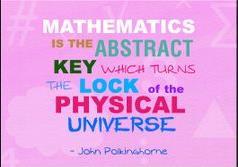The real challenge to 21st Century Learning

What the Common Core hopes to accomplish, what new research and practices are finding, isn't whether a person can be good at math - because anyone can be - it's in every student being able to answer these three questions:
How (using what methods) can I be successful at math, or in math class?
What tools do I need to master the content standards I am responsible for?
How do I show my mathematical achievement?
This brings us naturally to defining what it means to be successful at math.
The funny thing is: that a letter grade, with all its weights and averages, is about the furthest assessment tool to measure mathematical thinking/theory that you can get! Grades are primararily behavioral indicators. Do you turn in your assignments on time? Do you follow the exampled steps to arrive at a pre-determined outcome? Can you memorize those steps long enough to work through a test that expects you to regurgitate the info from your practice on your homework?
If you answered "yes" to any of those questions then, congratulations, you're probably an A behavior student.
*But if you're anything like me... well let's just say that we'll need a new strategy. ☻
Ok, I've got good news and bad news...
First the bad news:
Letter grades, homework (practice), and tests aren't going anywhere... not yet anyway.
But the good news:
The educational community is looking at different ways to measure mastery; showing growth/learning, developing CONCEPTUAL UNDERSTANDING that will transfer a formula or process on a page to a real functioinal/practical applicaiton of mathematics at every level!
Can you imagine the possibilities? Close your eyes... wait... don't do that, you're reading. Just pretend you're closing your eyes!
